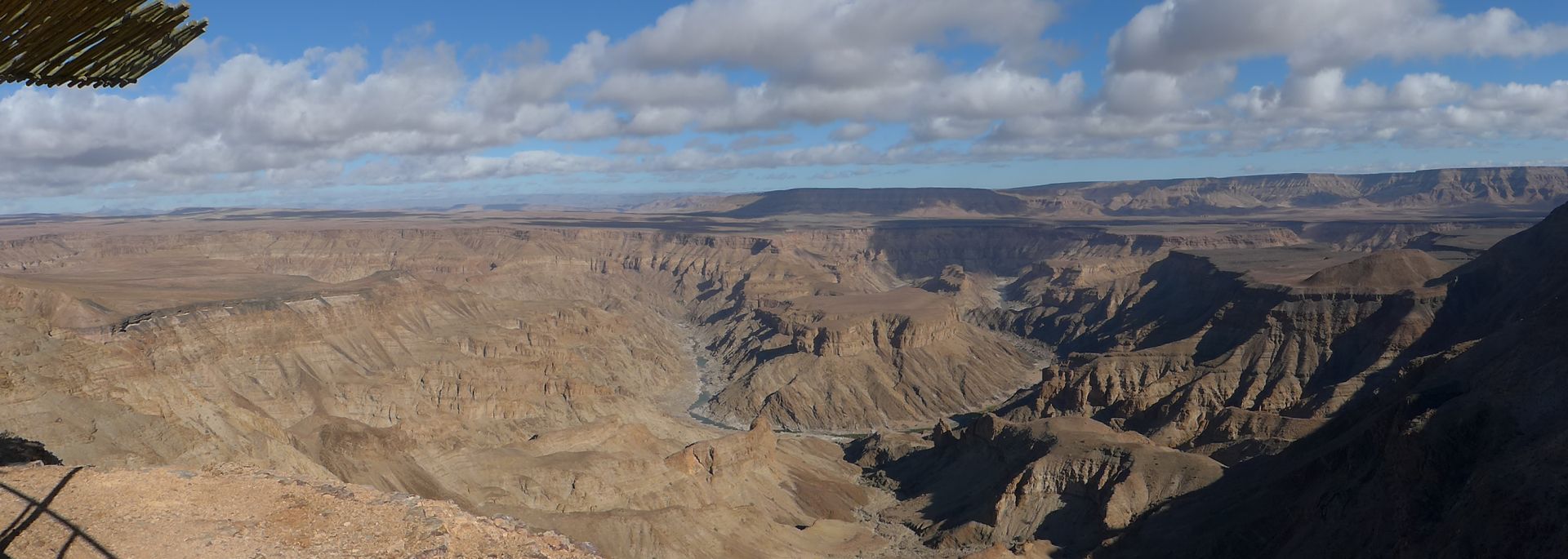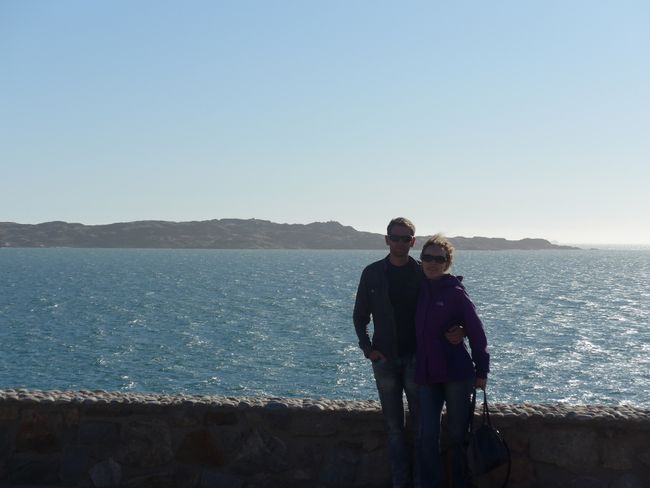
peters-on-tour
vakantio.de/peters-on-tour
Hot Water Beach and Cathedral Cove (New Zealand Part 16)
A bɔra kɛnɛ kan: 03.01.2019
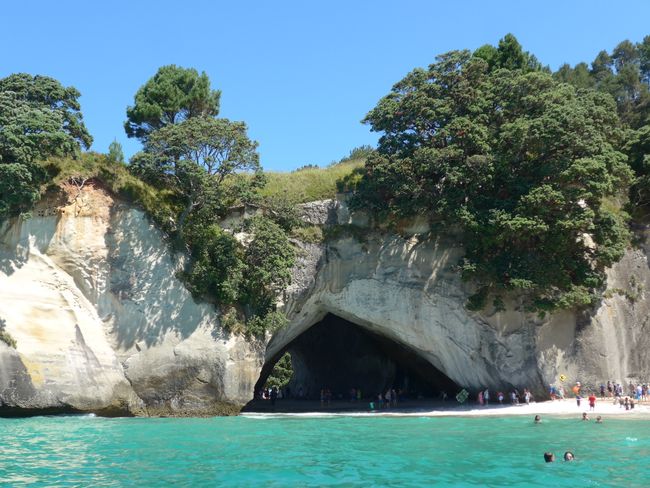
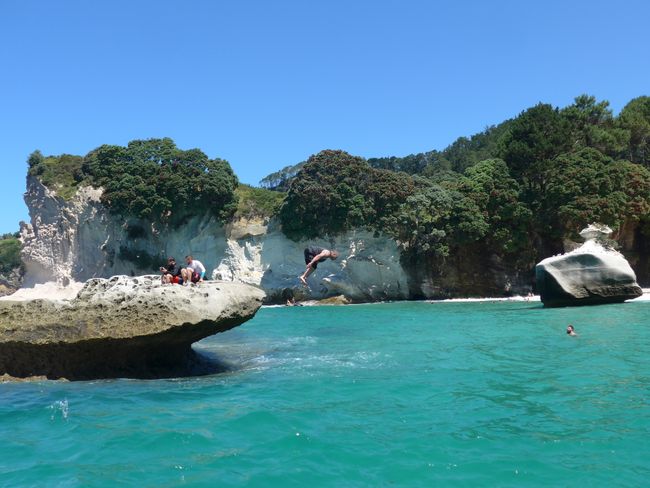

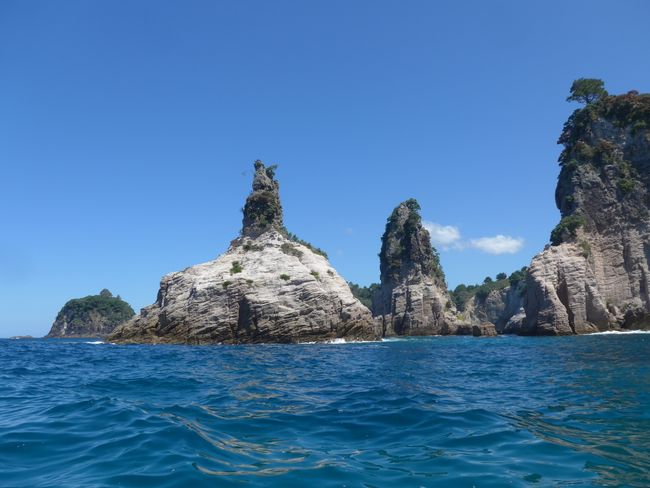
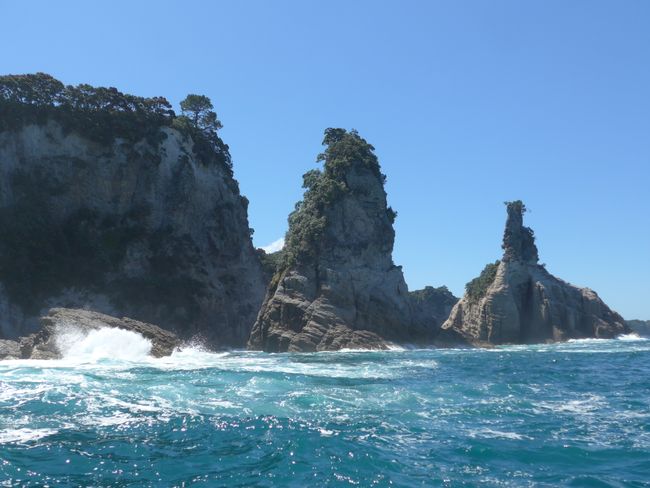
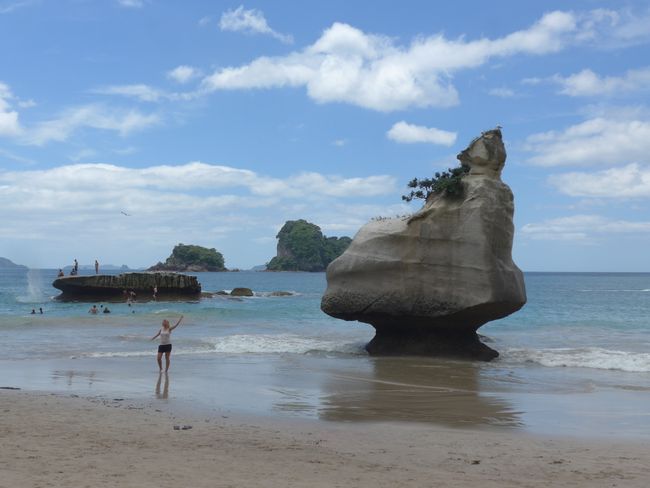
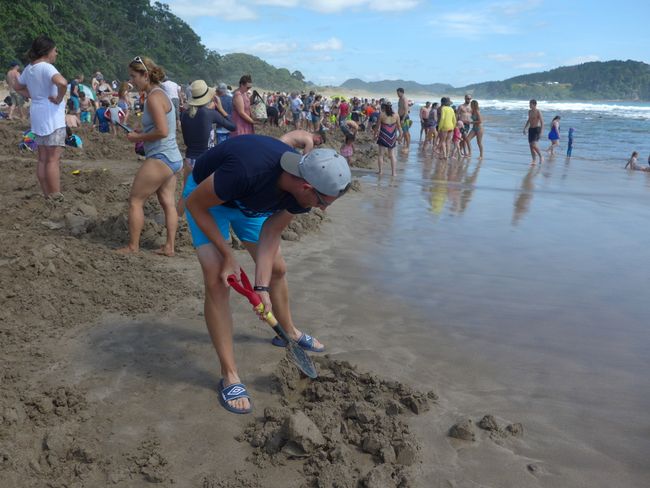
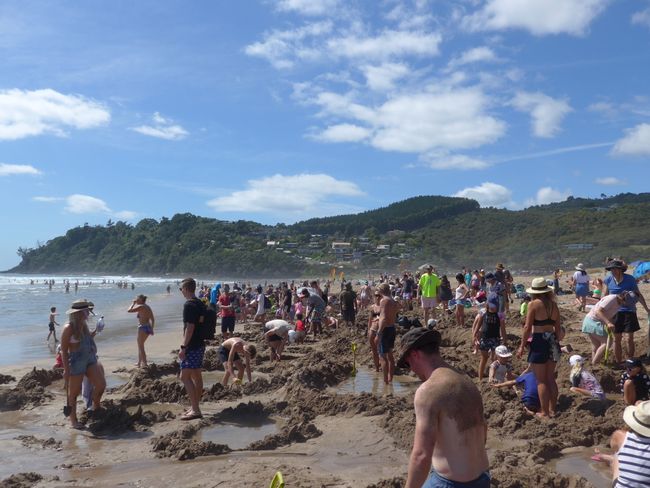

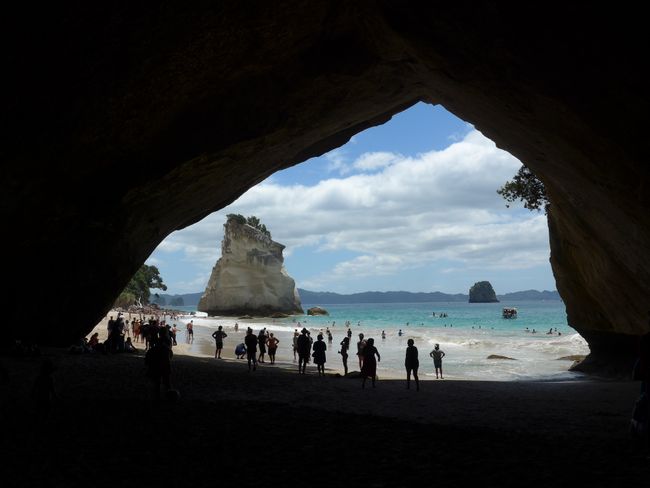
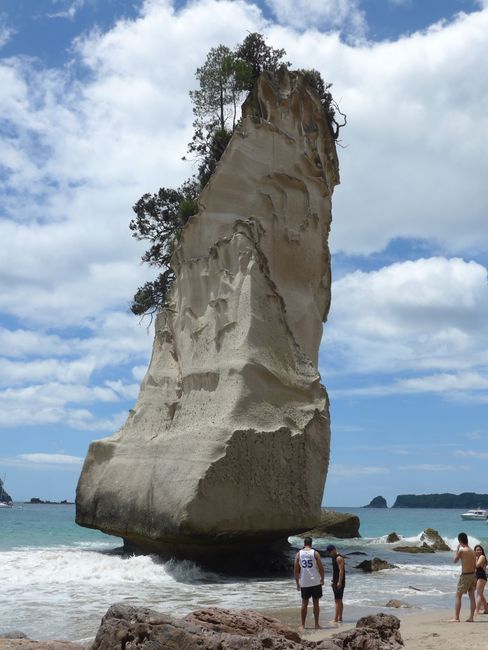
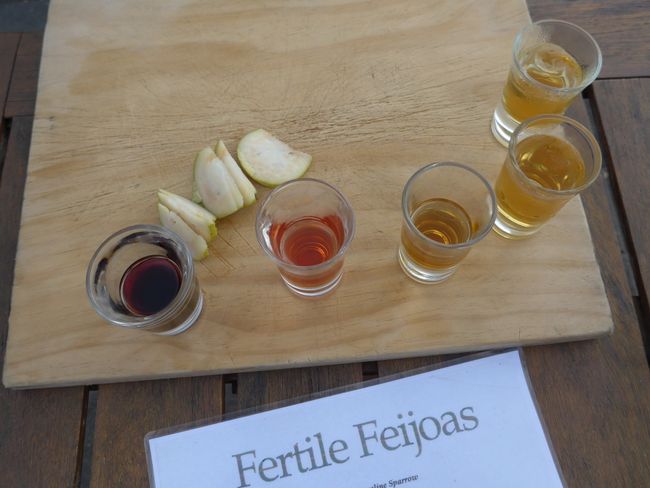
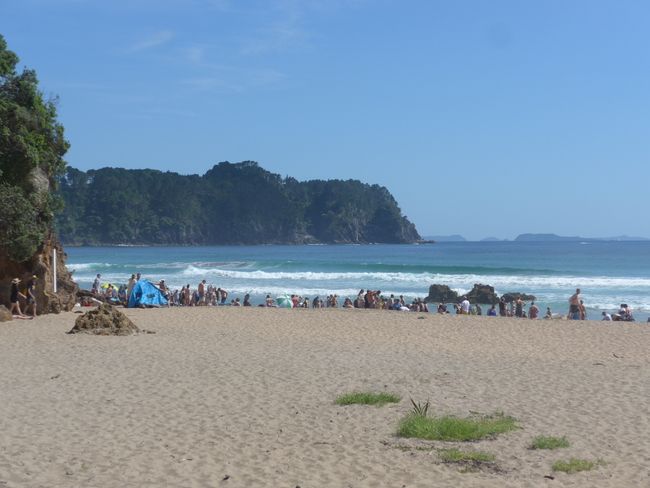
Aw ye aw tɔgɔ sɛbɛn Kibaruyaw la
On the east coast of the Coromandel Peninsula, we made our first stop in Whitianga, a small coastal town where the population is about ten times higher in the summer due to the many tourists.
While looking for a parking space, we saw a lot of cars with boat trailers, whose owners were obviously taking advantage of the beautiful summer weather for a boat ride. Overall, we got the impression that many New Zealanders own their own boat and don't store it in one place but constantly drive it around.
Since we didn't have our own boat, we bought two tickets for a tour to Cathedral Cove.
This place is named after a huge cave with a high ceiling that you can walk through.
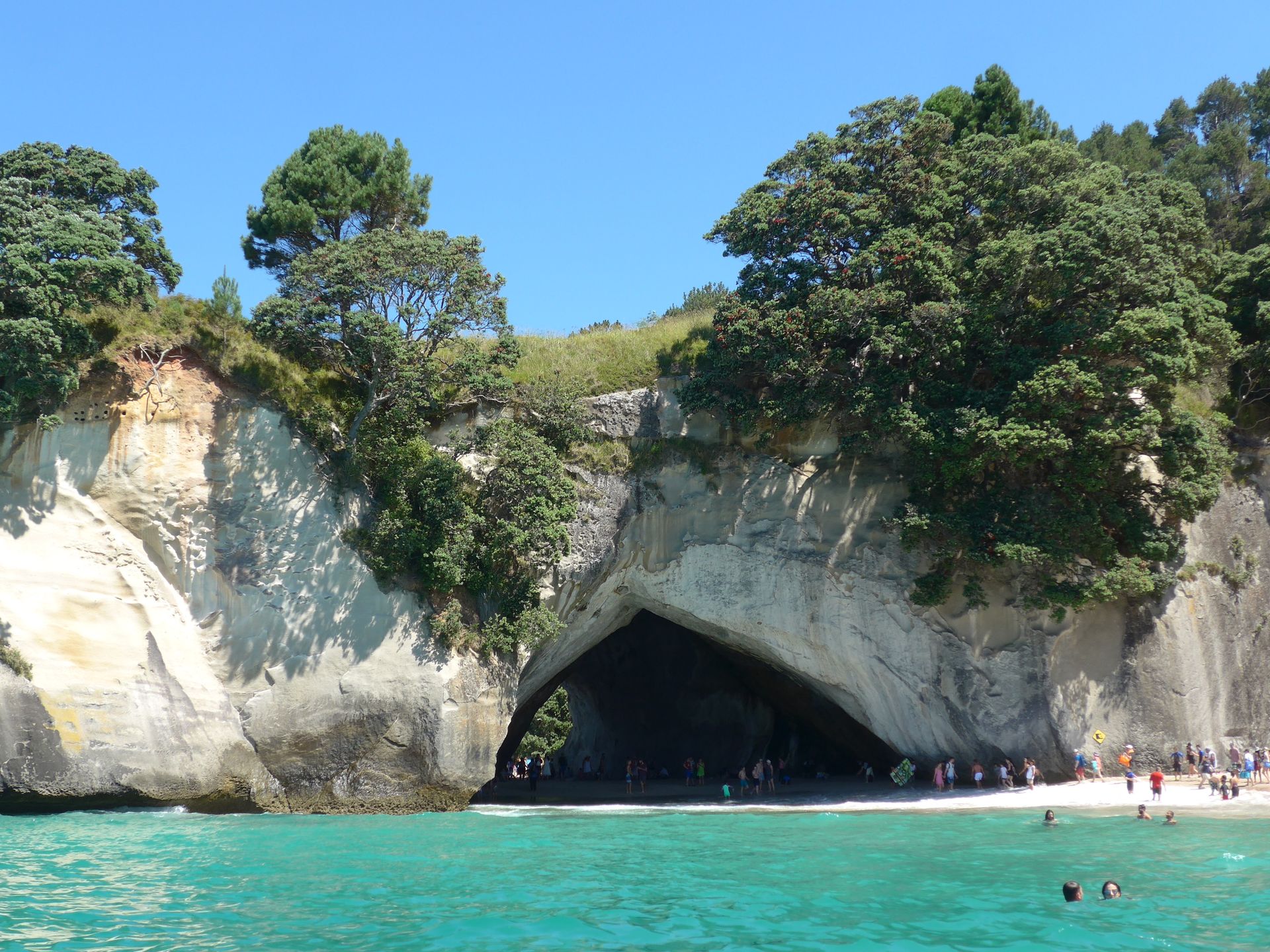
From the boat, we could see it well and also watch the many swimmers who were cooling off in the warm weather.
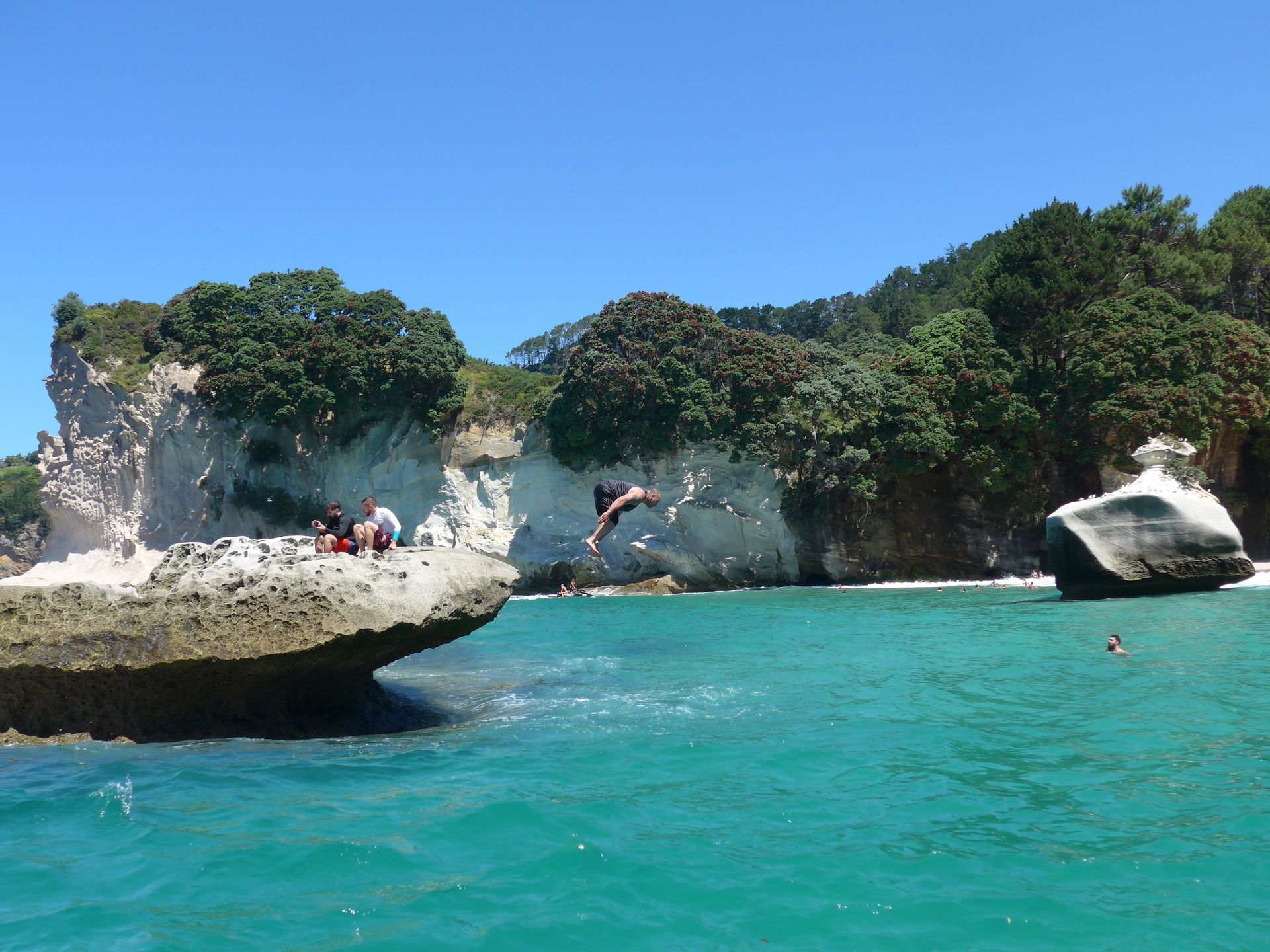
However, the waves were quite high: as we ventured further out, our small boat was shaken and some waves obstructed our view of the horizon.
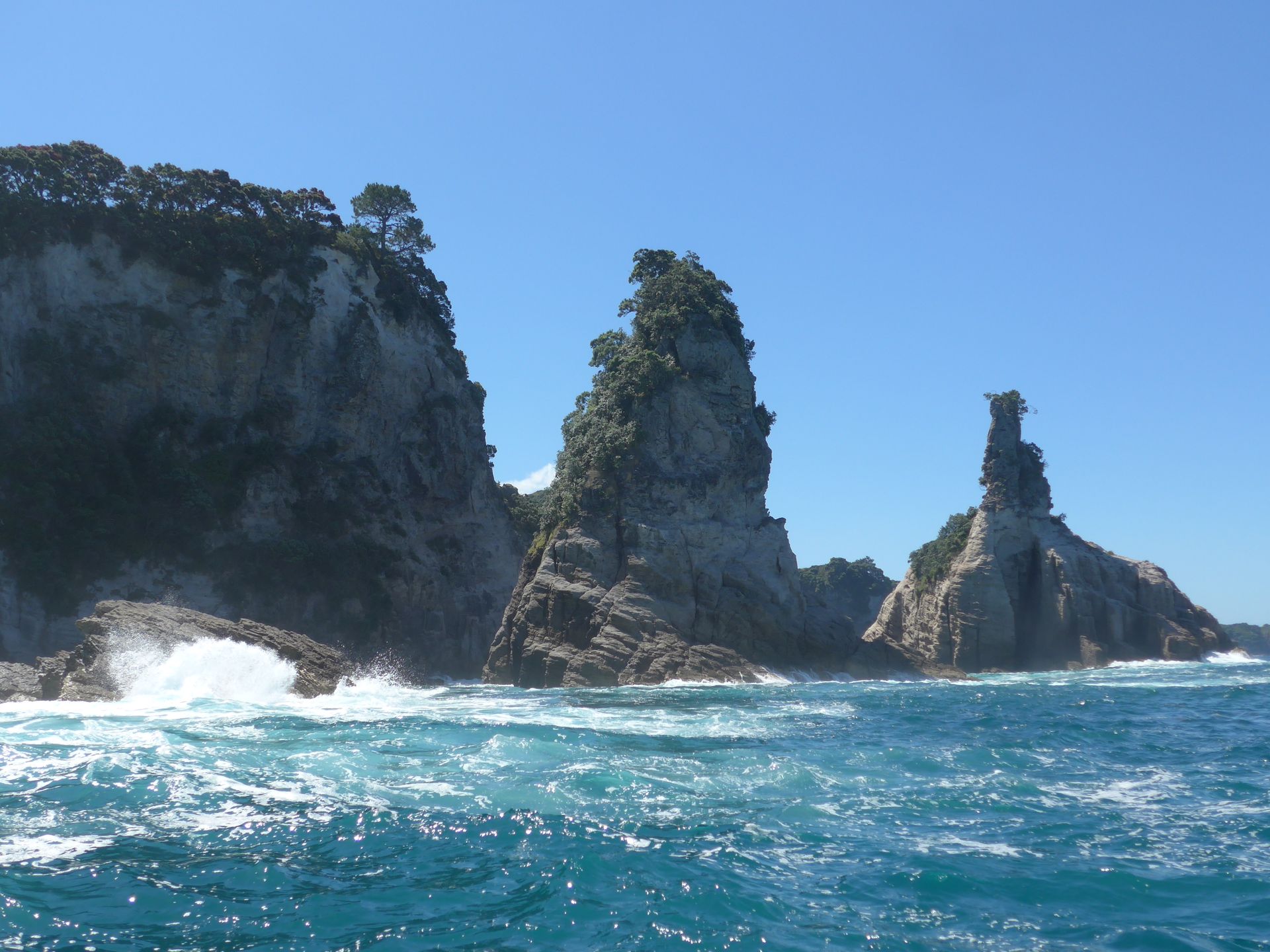
We also stopped at the 'Champagne Bay', which got its name from a rock formation that looks like an upside-down champagne glass (at least if you've already had a glass or two of it).
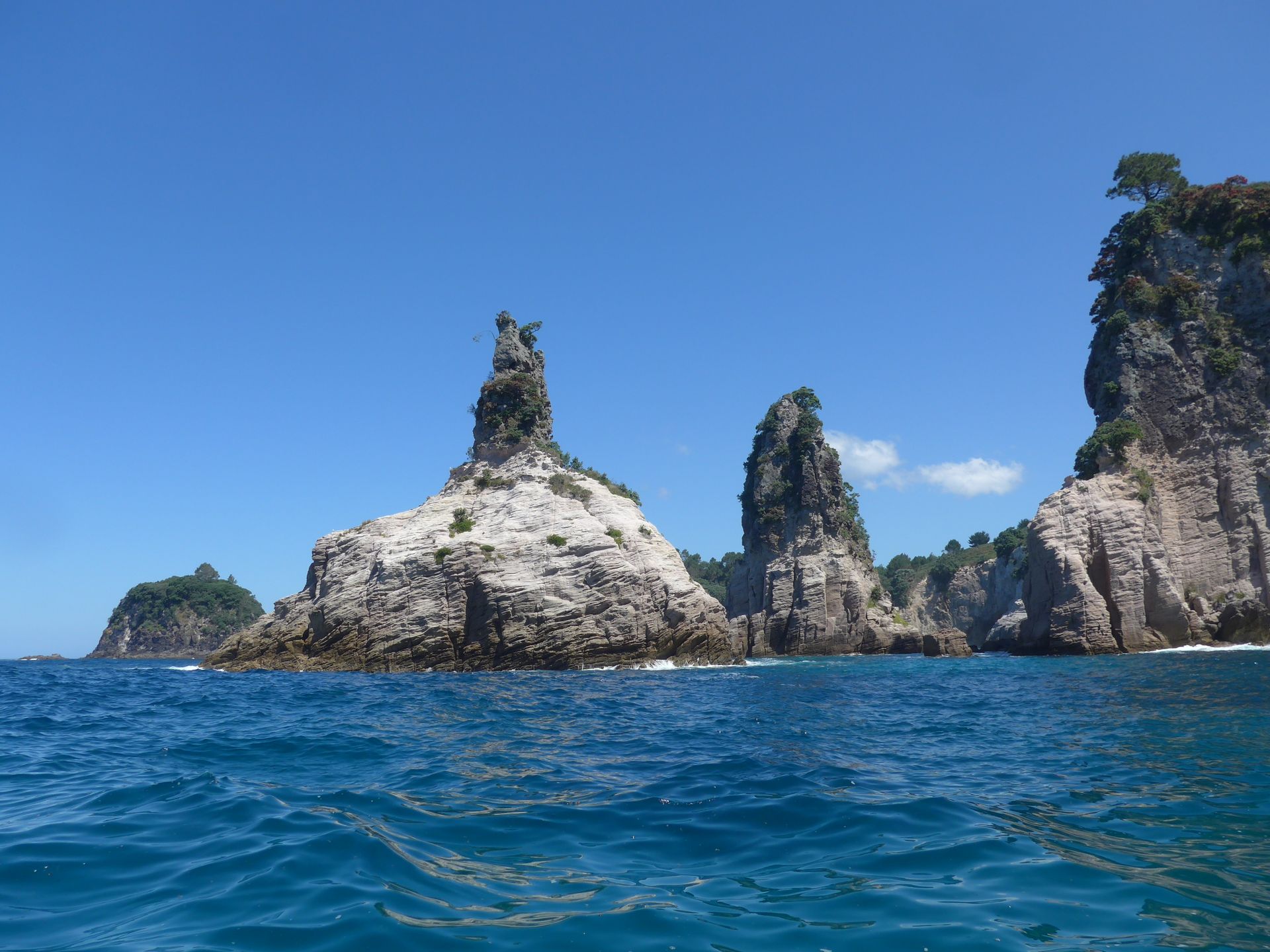
The next morning, we drove to the 'Hot Water Beach' about two hours before low tide. There, hot water flows underground beneath the sand.

If you dig a hole in the right spot, the hot water fills it up and you can bathe in your own personal hot pool.
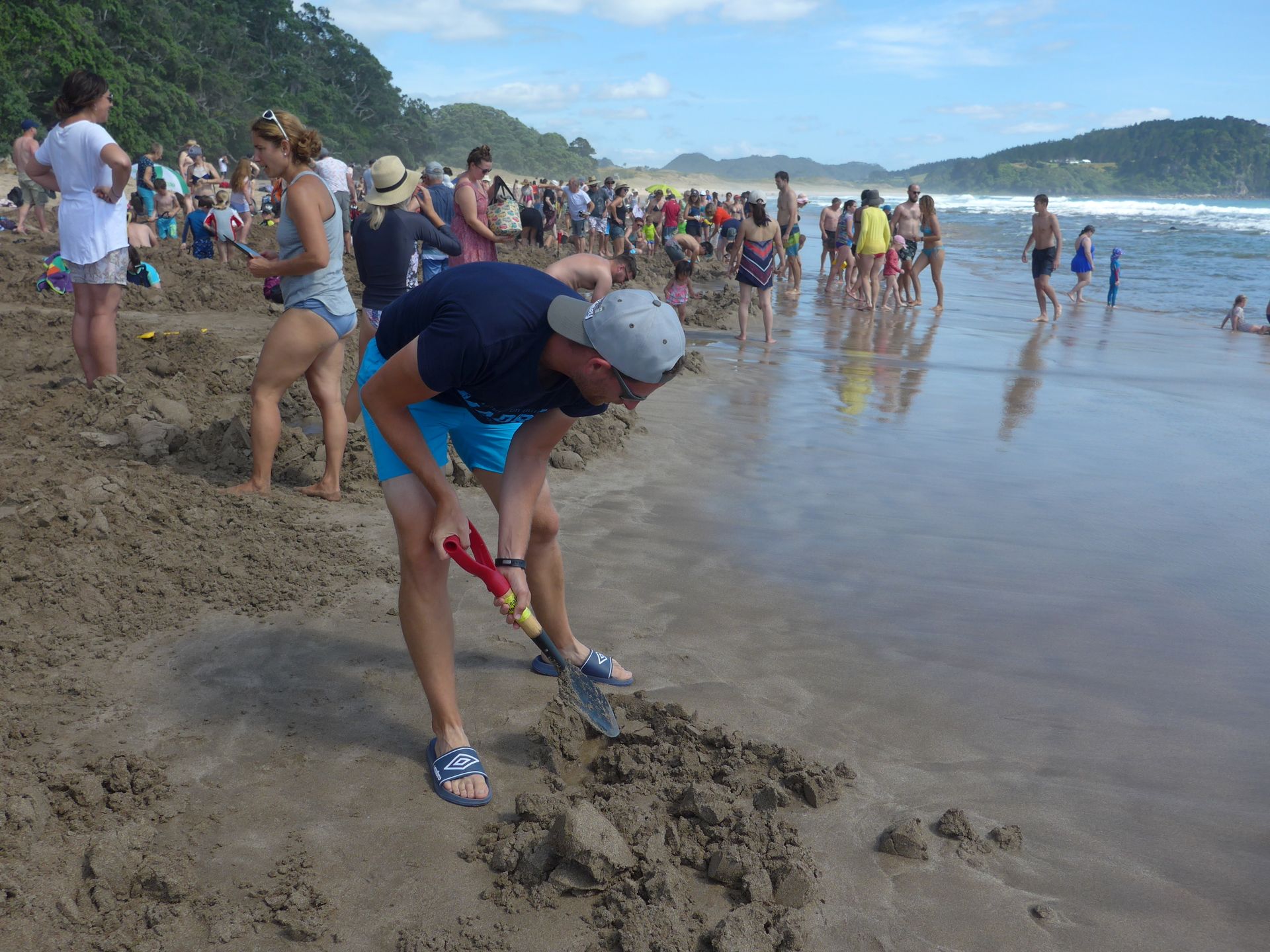
This is so popular that the area with the hot springs is packed with people. At first, we had difficulties finding a suitable spot, but then a friendly gentleman who was leaving pointed us to his pool, which we could expand and use. However, we had to avoid the spot where the hot water was flowing in order not to get burned. Afterward, we cooled off with a cold shower at the exit.
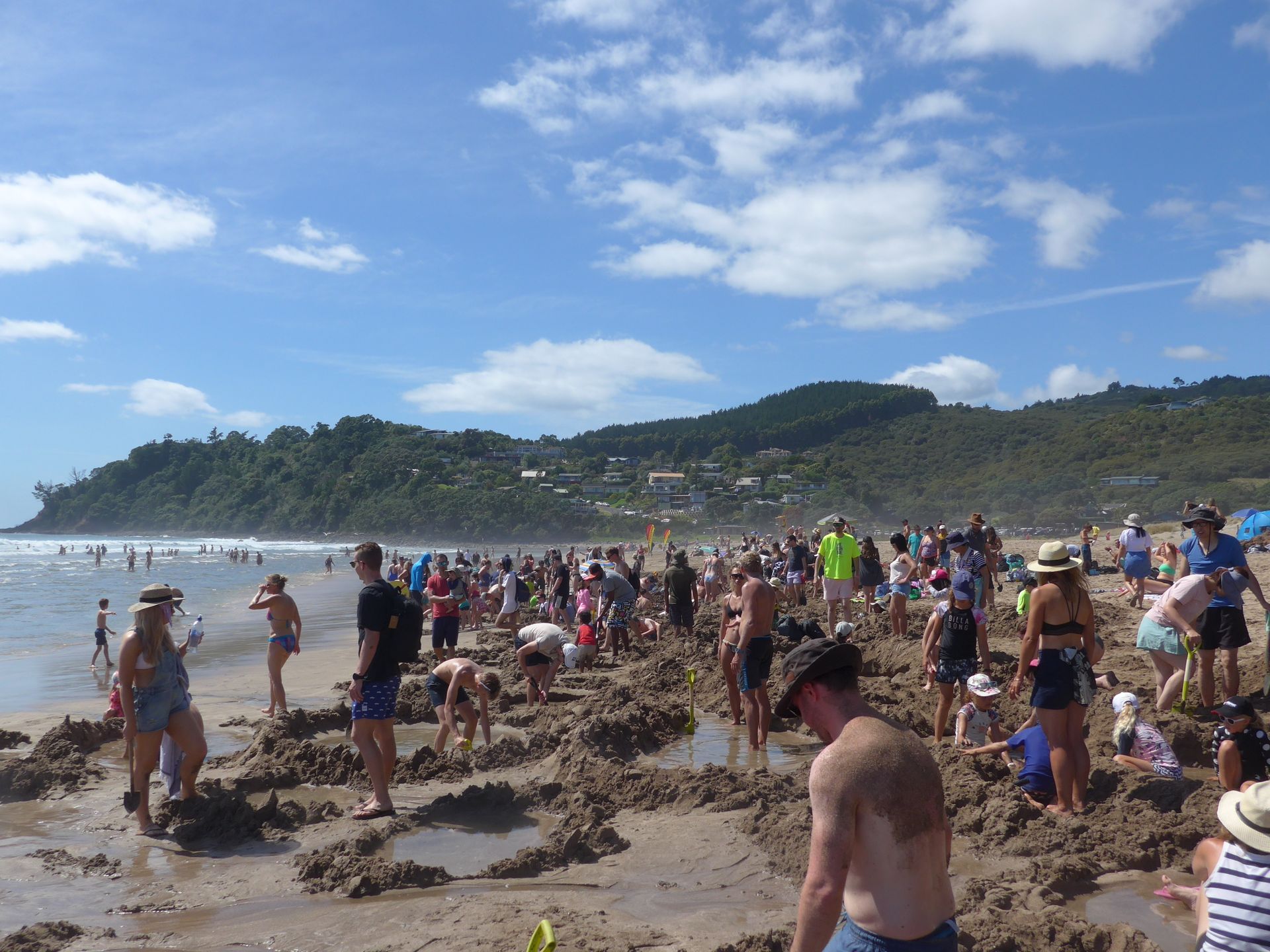
Since we had already seen Cathedral Cove from the water the day before, we also wanted to walk through the cave ourselves.

A 45-minute hiking trail leads to the beach, which offers beautiful views but also some steep climbs.

At the end, we had to descend a staircase to the beach and then we could walk around the bay. In addition to swimmers and photographers, there were also some people spending a day at the beach.

In the evening, we went to a brewery that conveniently happened to be located on the grounds of our campsite. At the end of the meal, a gentleman came to us and raved about the excellent liqueurs that can be made from the pineapple guava (feijoas), which are very popular in New Zealand. In addition to some information, we were also given a tray with a fruit and five glasses for tasting.
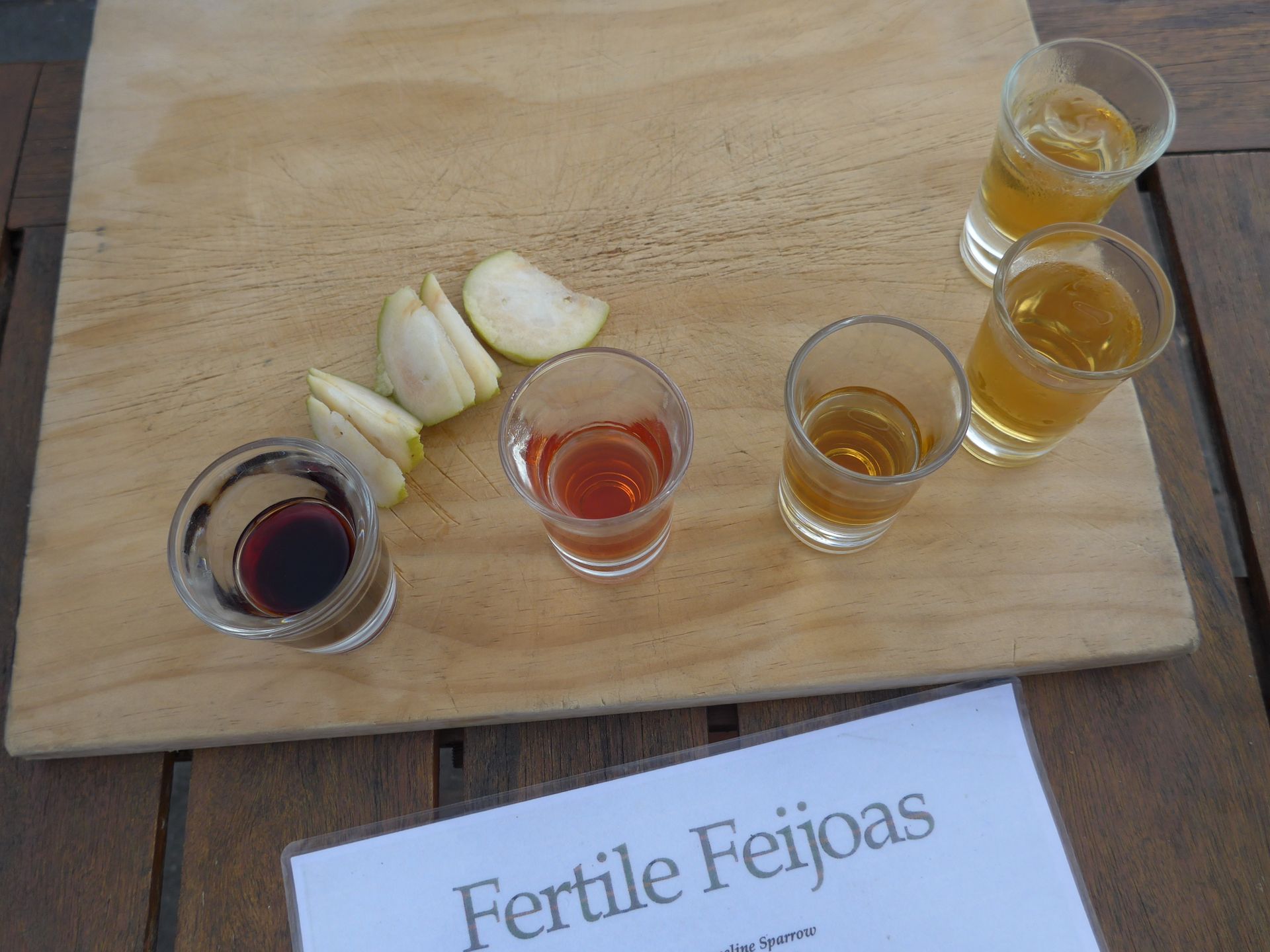
Aw ye aw tɔgɔ sɛbɛn Kibaruyaw la
Jaabi

Taama rapɔɔriw Zelande kura
